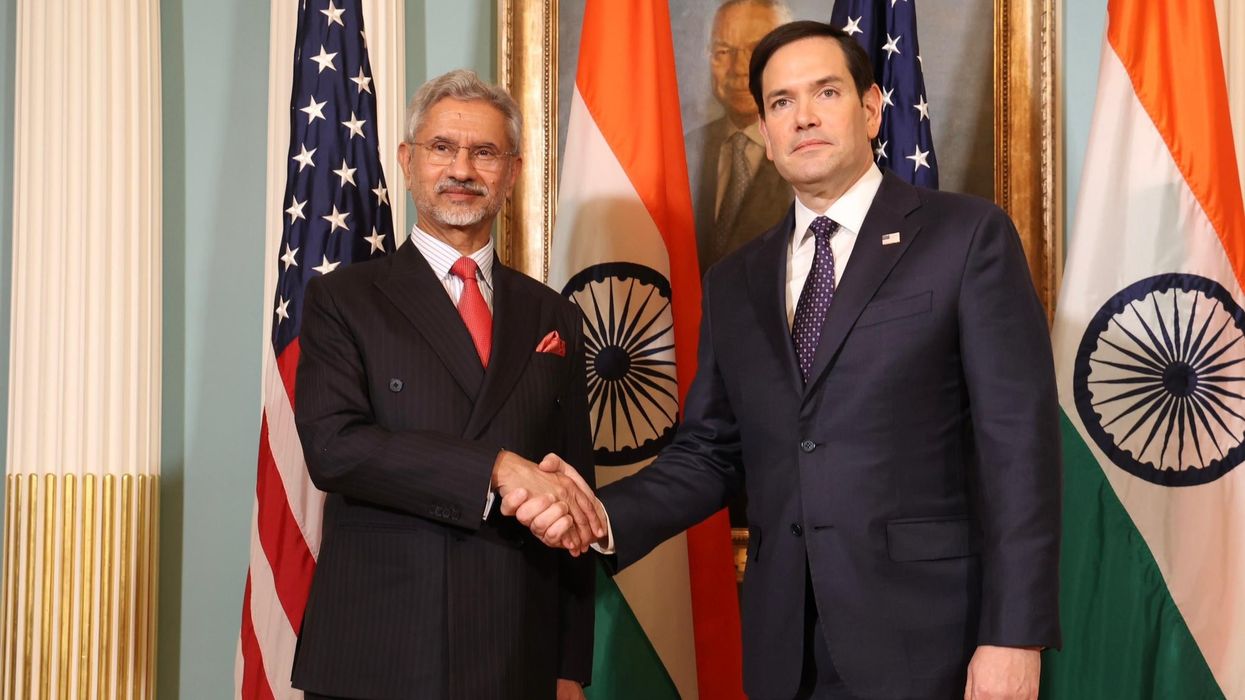INDIA's foreign minister S Jaishankar has told US secretary of state Marco Rubio that those behind last week's attack in Kashmir must be brought to justice. The comments came as the United States called for de-escalation of tensions between India and Pakistan.
The US said Rubio spoke to leaders of both countries in separate calls on Wednesday and encouraged them to work together to reduce tensions.
Rubio expressed support to India in its efforts against extremism and urged Pakistan to cooperate in the investigation into the attack that killed 26 people, according to the US State Department.
ALSO READ: India and Pakistan’s military strength compared amid Kashmir tensions
Jaishankar said in a post on X that he told Rubio the “perpetrators, backers and planners” of the April 22 attack “must be brought to justice”.
Pakistan’s prime minister Shehbaz Sharif urged the US to press India to “dial down the rhetoric and act responsibly,” his office said in a statement.
Officials and survivors said the attackers, described by Indian authorities as Islamist assailants, targeted a meadow in Kashmir’s Pahalgam area that was crowded with tourists.
ALSO READ: Pakistan says it has credible intelligence of imminent Indian military strike
The assailants separated men, asked their names, and shot Hindus at close range. At least 26 people were killed, most of them tourists.
India has identified the three attackers, including two Pakistani nationals, as terrorists involved in a violent revolt in Kashmir.
Pakistan has denied any involvement and called for a neutral investigation.
Kashmir, which is majority Muslim, is claimed in full by both India and Pakistan, though each controls only part of the region.
India and Pakistan have fought two wars over Kashmir. India accuses Pakistan of supporting and funding an anti-government insurgency that began in 1989 and has since declined.
ALSO READ: UK and US call for calm as India-Pakistan tensions rise
Pakistan says it provides only diplomatic and moral support to the Kashmiri demand for self-determination.
Following the Pahalgam attack, India put a river water sharing treaty with Pakistan on hold. Both countries have also shut their airspace to each other's airlines.
For the past seven nights, troops from both sides have exchanged small arms fire across the border, but India has said there have been no casualties.
The United Nations has urged both countries to avoid confrontation. China also called for restraint earlier this week.
The head of the Pakistan-administered part of Kashmir called for international mediation and said his administration was preparing a humanitarian response in case of escalation.
India’s navy has issued warnings for several firing drills in the Arabian Sea off the coasts of Maharashtra and Gujarat. Gujarat borders Pakistan. The navy has not commented on the warnings.
Earlier this week, Indian prime miinister Narendra Modi told his military chiefs they had the freedom to decide the country’s response to the Pahalgam attack, according to a government source.
Pakistan has said it believes Indian military action is imminent.
India closes airspace to Pakistan
India shut its airspace to Pakistani aircraft on Wednesday, responding to Islamabad’s earlier move banning Indian planes from flying over its territory.
The tit-for-tat measures come as tensions rise between the nuclear-armed neighbours.
Pakistan closed its airspace to Indian aircraft on April 24. India’s ban, which includes military flights, will last until May 23, according to a government notice.
The notice to air operators said that Indian airspace was not available for Pakistani registered or leased aircraft -- "including military flights".





